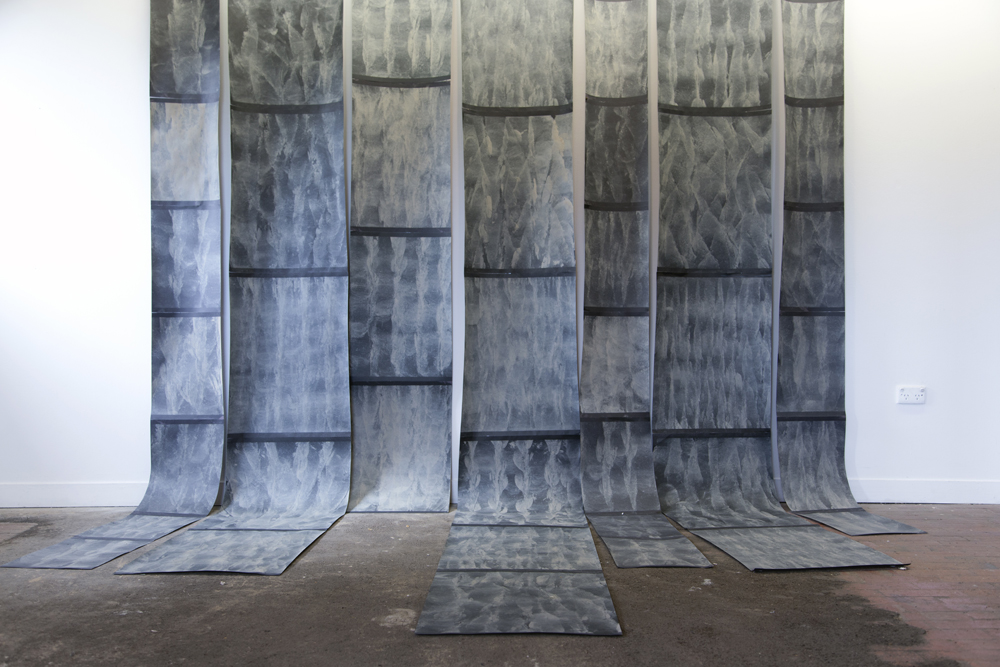"By no stretch . . .a locus amoenus"— traces of dirt in the early poetry of James McAuley
Keywords:
James McAuley, Australian poetry, modernismAbstract
Western mythology traditionally offered sparse, negative readings of things related to earth, as a prison-like entity guarded by the god Hades (Cirlot, Grillet). This paper traces motifs of dirt and soil in several early poems by James McAuley (1917-76). “Envoi” (1938), an inland landscape from McAuley’s stay in Bungendore, rural NSW, attributes to the “soil, the season and the shifting airs” the “faint sterility that disheartens and derides.” Similarly, “The Tomb of Heracles” (1947-49) reiterates motifs of aridity and sterility in imagery of dry landscape: “Blind light, dry rock, a tree that does not bear.” Nonetheless, a differentiation occurs in “Envoi,” in introducing the motif of suppressed fertility and “good chance” in the “artesian heart,” in which earth is reluctantly recognised as the eventual, vital water bearer.
This paper traces the important formative influence of T.S. Eliot, notably “The Waste Land” and Australia’s own agency of modernism the Jindyworobak movement, with its original environmental manifesto (1937) and celebration of Australia’s dry interiors and indigenous values. It traces other, desolate encounters with earth in McAuley’s war-time reading of early Portuguese chronicles of voyage reflected in his explorer poem “Henry the Navigator” (1944)— “These roots of stunted bushes scrabble earth/Like withered birds […].” The poem adverts to later European “discovery” of Australia’s reportedly arid coasts.
The paper also identifies the return to a more accepting reading of motifs of dry earth-scapes “Harsh, dry, abrasive, spikey, rough” in McAuley’s later poems depicting the Coles Bay nature reserve in eastern Tasmania: “By no stretch [..] a locus amoenus” (Bush Scene”, 1974).
References
Bachelard, Gaston. La Terre et les Reveries du Repos. (1948), 2nd ed. Paris: Coti, 2004.
Beazley, C. Raymond. Introduction to The Chronicle of the Discovery and Conquest of Guinea. By Gomes Eannes de Azuzara, London: Hakluyt, 1894, Footnote 2, viii.
Cirlot, J.E.. A Dictionary of Symbols. Trans. Jack Sage. 2nd ed., London: Routledge, 1971.
Cook, Michael. ‘James McAuley’s encounter with Modernism’. Unpublished PhD thesis, U Sydney, 1993.
Dixon, Robert. ‘Scenes of Reading: Is Australia a World Literature?’ Republics of Letters: Literary Communities in Australia. eds. Peter Kirkpatrick and Robert Dixon, Sydney: Sydney U Press 2012. 71-79.
Dobson, Rosemary. ‘A World of Difference: Australian Poetry and Painting in the 1940s.’ Southerly, 33.4, (1973): 365-383.
Eliot, T. S.. Collected Poems: 1909-1962. London: Faber, 1963.
Examined Life. Dir. Astra Taylor. Perf. Cornel West, Avita Ronell, Peter Singer, Kwame Anthony Appiah, Martha Nussbaum, Michael Hardt, Slavoj Žižek Judith Butler and Sunaura Taylor, Zeitgeist Films, 2008.
Freud, Sigmund. Civilisation and its Discontents, Trans. Joan Riviere. New York: Cape, 1930.
Gibson, Ross. South of the West: Postcolonialism and the Narrative Construction of Australia, Bloomington & Indianapolis: Indiana UP, 1992.
Heaney, Seamus. ‘North’. New and Selected Poems 1966-1987. London: Faber, 1990, 57.
Horne, Donald. The Education of Young Donald. Ringwood: Penguin, 1975.
Ingamells, Rex and Ian Tilbrook. Conditional Culture. Adelaide: F.W. Preece, 1938.
Kane, Paul. Australian Poetry: Romanticism and Negativity. Cambridge: Cambridge UP, 1996.
Lefebvre, Henri. ‘Notes on the New Town.’ The Cultural Studies Reader, ed. Simon During. 3rd ed. London & New York: Routledge, 2007. 148-155.
McAuley, James.
(Glaucon). ‘The Journey of the Magus’. Hermes. 43.1, (1937): 12-17.
‘Less of It.’ unsigned editorial. Hermes, 43.1, (1937): 37.
Letter to George Mackaness, 19 January 1942. George Mackaness Papers, MS 534, NLA.
Under Aldebaran, Melbourne: Melbourne UP, 1946.
‘Homage to Chris Brennan’. Southerly, 18.3 (1957): 135-142.
The End of Modernity: Essays on Literature, Art and Culture. Sydney: Angus and Robertson, 1959.
‘The Grinning Mirror’. The End of Modernity. Sydney: Angus and Robertson, 1959. 55-69.
‘Notes and Speculations’. The End of Modernity. Sydney: Angus and Robertson, 1959. 160-180.
‘James McAuley on Commitment’. Interview with Tony Morphett. ABC ts. 25 September 1966. Ms 1511, SLNSW.
‘Poetry in Australia. James McAuley.’ Interview with John Thompson, Southerly, 27.2 (1967): 96-106.
Collected Poems: 1936-1970. Sydney: Angus and Robertson, 1971.
‘The Languages of Poetry’. The Grammar of the Real: Selected Prose 1959-1974. Melbourne: Oxford UP, 1975. 56-68.
‘The Poetry of Georg Trakl’. The Grammar of the Real: Selected Prose 1959-1974. Melbourne: Oxford UP, 1975. 202-223.
Collected Poems. Sydney: Angus and Robertson, 1994
Malley, Ern. (James McAuley and Harold Stewart) ‘The Darkening Ecliptic’ Angry Penguins, June 1944.
Malouf, David. A First Place. North Sydney: Knopf, 2014.
Mudie. Ian. ‘My Land’. The New Book of Australian Verse. Ed. Les Murray. 3rd ed. Melbourne: Oxford UP, 1996.
Puga, Rogério Miguel. ‘From Dirt Aesthetics to Monumental Religious and Foodscapes: Representations of Portugal at War during Lord Byron’s visit (1809) in John Cam Hobhouse’s Diary.’ Unpublished conference paper, 40th Conference of APEAA (Associação Portuguesa de Estudos Anglo-Americanos), U. Porto, 7 June 2019.
Downloads
Published
Issue
Section
License
The copyright for articles in this journal is retained by the author(s), with first publication rights granted to the journal. By virtue of their appearance in this open access journal, articles are free to use with proper attribution in educational and other non-commercial sectors.Attribution-NonCommercial-ShareAlike 2.1 Australia
This work is licensed under the Creative Commons Attribution-NonCommercial-ShareAlike 2.1 Australia License. To view a copy of this license, visit http://creativecommons.org/licenses/by-nc-sa/2.1/au/ or send a letter to Creative Commons, 543 Howard Street, 5th Floor, San Francisco, California, 94105, USA.

